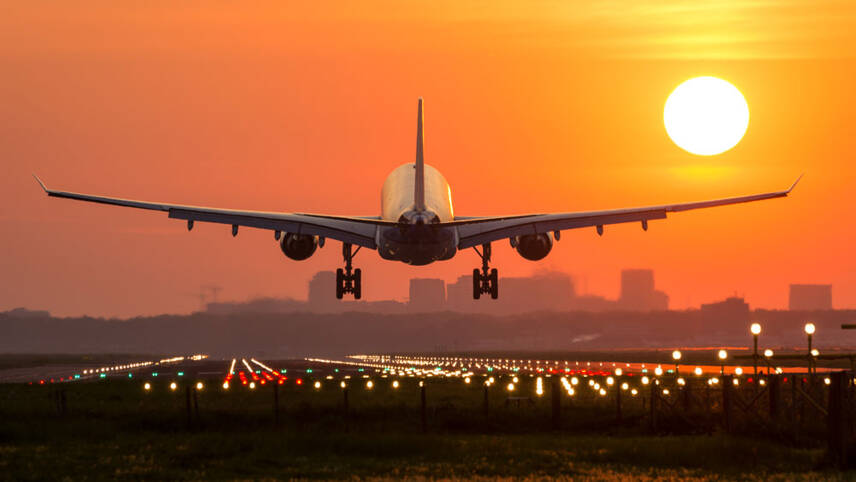Register for free and continue reading
Join our growing army of changemakers and get unlimited access to our premium content

Conducted by the NGO Transport & Environment (T&E), the analysis looked into the transport-related emissions commitments plus the emissions footprint of 328 companies across the US, Europe and Asia.
Just 57 of these companies were found to have a public target to cut emissions. This means that more than 80% of the companies assessed have no plans to cut emissions from business travel, despite most of them having publicly articulated a net-zero target for 2050 or sooner.
T&E is highlighting how credible, science-based net-zero emissions goals necessitate a deep cut in absolute emissions this decade, thus accusing those firms omitting flight emissions from accounting as “paying lip service to their climate responsibilities at best”.
Businesses without a target include oil and gas majors ExxonMobil and Shell, building materials conglomerate Holcim and pharma businesses Johnson & Johnson and Merck & Co.
The technology sector is highly represented in the group of laggards, with the likes of Meta, Cisco, Apple, IBM and Microsoft having no business emissions goals. The same is true of the entertainment industry, with T&E naming brands such as Netflix, Comcast and The Walt Disney Company.
T&E claims that 25 of the businesses it found to have no targets collectively account for more than one-third (36%) of all business travel emissions disclosed through CDP. They are collectively flying enough annually to generate the emissions footprint of the annual use of six million cars.
T&E has described its ranking as “a call to action” and is asking all firms included to commit to halve the emissions intensity of business travel by 2030.
Halving business travel emissions could be achieved by replacing flights with train journeys where possible, or virtual meetings where this is not feasible. Less than one in ten of the companies assessed have established policies to shift from aviation to rail, with these leaders using a mix of outright bans and incentives for staff to use rail.
T&E’s corporate travel manager Denise Auclair said: “There are no excuses for not taking action. Peers in their sector have set ambitious targets, so what is stopping laggards like IBM and Johnson & Johnson from doing the same? They must urgently set targets or risk losing out to competitors.”
Companies leading the way with target-setting include Pfizer, EY, Boston Consulting Group and PwC.
Air passenger numbers are set to exceed pre-pandemic levels for the first time in 2024 according to some forecasts. However, the growth has predominantly been driven by travel for leisure. Analysis published by Deloitte late last year revealed that corporate spending on flights was only two-thirds of the level seen in 2019.
Related article: What are the decarbonisation challenges facing airlines and their corporate customers?


Please login or Register to leave a comment.